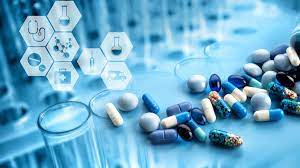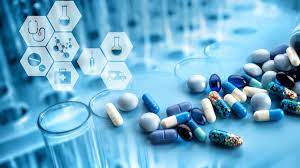
Pharmaceutical companies that made billions selling vaccines and treatments during the pandemic are now facing a steep COVID cliff and investor pressure to spend their windfalls wisely.
Pfizer Inc, BioNTech SE, Moderna Inc, Gilead Sciences Inc, AstraZeneca Plc, and Merck & Co are expected to generate approximately $100 billion in revenue from COVID vaccines and treatments in 2022.
According to company and analyst estimates, sales could fall by nearly two-thirds this year due to increased product inventories around the world, including in the highest-paying countries. Because of population immunity resulting from high vaccination rates and previous infections, demand for treatments may fall as well.
These companies are accustomed to steep revenue drops known as patent cliffs, which occur when their exclusivities on top-selling drugs expire and generic competitors enter the market, but they plan for those swings for years.
"When you think about traditional drug and vaccine development and longevity of sales, it's usually much more spread out," Morningstar analyst Damien Conover said. "This is very, very concentrated."
According to him, the sudden inflow of revenue should prompt companies to strike deals and collaborate with new partners.
According to Evan Seigerman, an analyst at BMO Capital Markets, companies should use the quick cash for transformative deals.
"Pfizer did these $10 billion deals to build their portfolio, and I think they need to do something bigger and more impactful," he said, referring to Pfizer's acquisitions of Global Blood Therapeutics for $5.4 billion and Biohaven Pharmaceutical for $11.6 billion.
Pfizer has reaped the most financial benefits from the pandemic, with more than $56 billion in revenue expected from the vaccine it developed with German partner BioNTech and its COVID-19 antiviral treatment Paxlovid by 2022.
Pfizer has stated that it expects revenue to fall to around $21.5 billion in 2023, though some analysts believe that estimate is too optimistic.
In Schwenksville, children aged 5 to 11 receive booster vaccinations against the coronavirus disease (COVID-19).
"We remain skeptical that COVID revenues will grow in 2024 and beyond," JP Morgan analyst Chris Schott said in a research note, adding that vaccination rates could fall even further than the significant decline seen with booster shots in 2022.
Moderna, a vaccine manufacturer, anticipates a significant drop in revenue in 2023. In 2022, the company's sole product, the messenger RNA COVID vaccine, is expected to generate approximately $18.4 billion. Analysts predict that figure will fall to around $7 billion by 2023. The company's earnings are expected later this month.
Investors are "frustrated Moderna hasn't used their firepower more effectively to prepare for declining revenues and earnings in 2023 or 2024," according to Oppenheimer & Co analyst Hartaj Singh.
Moderna shares have risen in recent months, but their Friday closing price of $173.25 is more than 65% lower than their pandemic high of close to $500 in August 2021.
"There are examples of companies that have sat on their hands and the share price has not done well, and Moderna could go down that path," Singh cautioned.
Other companies' COVID businesses have had a more modest impact.
"We are not counting on Lagevrio as a driver of growth for our business," Merck Chief Executive Rob Davis said in an interview last week of the company's antiviral pill. "We very much saw Lagevrio as an opportunity to make a meaningful difference at a time of need."
Last year, Merck reported $5.7 billion in sales from the treatment. Analysts predict that it will fall below $1 billion this year. Merck's total sales in 2022 were expected to exceed $59 billion.
Eli Lilly and Company made $2 billion in revenue from monoclonal antibody COVID treatments in 2022 and does not expect any revenue in 2023.
In November, the US Food and Drug Administration revoked Lilly's latest antibody, bebtelovimab, because it was ineffective against circulating Omicron subvariants.
"We did fine with COVID," Eli Lilly CEO Dave Ricks said in an interview. "We made a little bit of money with it. What we did with that was we mostly reinvested it in R&D (Research and Development), and last year was a record R&D spending year for the company."
(Source:www.reuters.com)
Pfizer Inc, BioNTech SE, Moderna Inc, Gilead Sciences Inc, AstraZeneca Plc, and Merck & Co are expected to generate approximately $100 billion in revenue from COVID vaccines and treatments in 2022.
According to company and analyst estimates, sales could fall by nearly two-thirds this year due to increased product inventories around the world, including in the highest-paying countries. Because of population immunity resulting from high vaccination rates and previous infections, demand for treatments may fall as well.
These companies are accustomed to steep revenue drops known as patent cliffs, which occur when their exclusivities on top-selling drugs expire and generic competitors enter the market, but they plan for those swings for years.
"When you think about traditional drug and vaccine development and longevity of sales, it's usually much more spread out," Morningstar analyst Damien Conover said. "This is very, very concentrated."
According to him, the sudden inflow of revenue should prompt companies to strike deals and collaborate with new partners.
According to Evan Seigerman, an analyst at BMO Capital Markets, companies should use the quick cash for transformative deals.
"Pfizer did these $10 billion deals to build their portfolio, and I think they need to do something bigger and more impactful," he said, referring to Pfizer's acquisitions of Global Blood Therapeutics for $5.4 billion and Biohaven Pharmaceutical for $11.6 billion.
Pfizer has reaped the most financial benefits from the pandemic, with more than $56 billion in revenue expected from the vaccine it developed with German partner BioNTech and its COVID-19 antiviral treatment Paxlovid by 2022.
Pfizer has stated that it expects revenue to fall to around $21.5 billion in 2023, though some analysts believe that estimate is too optimistic.
In Schwenksville, children aged 5 to 11 receive booster vaccinations against the coronavirus disease (COVID-19).
"We remain skeptical that COVID revenues will grow in 2024 and beyond," JP Morgan analyst Chris Schott said in a research note, adding that vaccination rates could fall even further than the significant decline seen with booster shots in 2022.
Moderna, a vaccine manufacturer, anticipates a significant drop in revenue in 2023. In 2022, the company's sole product, the messenger RNA COVID vaccine, is expected to generate approximately $18.4 billion. Analysts predict that figure will fall to around $7 billion by 2023. The company's earnings are expected later this month.
Investors are "frustrated Moderna hasn't used their firepower more effectively to prepare for declining revenues and earnings in 2023 or 2024," according to Oppenheimer & Co analyst Hartaj Singh.
Moderna shares have risen in recent months, but their Friday closing price of $173.25 is more than 65% lower than their pandemic high of close to $500 in August 2021.
"There are examples of companies that have sat on their hands and the share price has not done well, and Moderna could go down that path," Singh cautioned.
Other companies' COVID businesses have had a more modest impact.
"We are not counting on Lagevrio as a driver of growth for our business," Merck Chief Executive Rob Davis said in an interview last week of the company's antiviral pill. "We very much saw Lagevrio as an opportunity to make a meaningful difference at a time of need."
Last year, Merck reported $5.7 billion in sales from the treatment. Analysts predict that it will fall below $1 billion this year. Merck's total sales in 2022 were expected to exceed $59 billion.
Eli Lilly and Company made $2 billion in revenue from monoclonal antibody COVID treatments in 2022 and does not expect any revenue in 2023.
In November, the US Food and Drug Administration revoked Lilly's latest antibody, bebtelovimab, because it was ineffective against circulating Omicron subvariants.
"We did fine with COVID," Eli Lilly CEO Dave Ricks said in an interview. "We made a little bit of money with it. What we did with that was we mostly reinvested it in R&D (Research and Development), and last year was a record R&D spending year for the company."
(Source:www.reuters.com)





